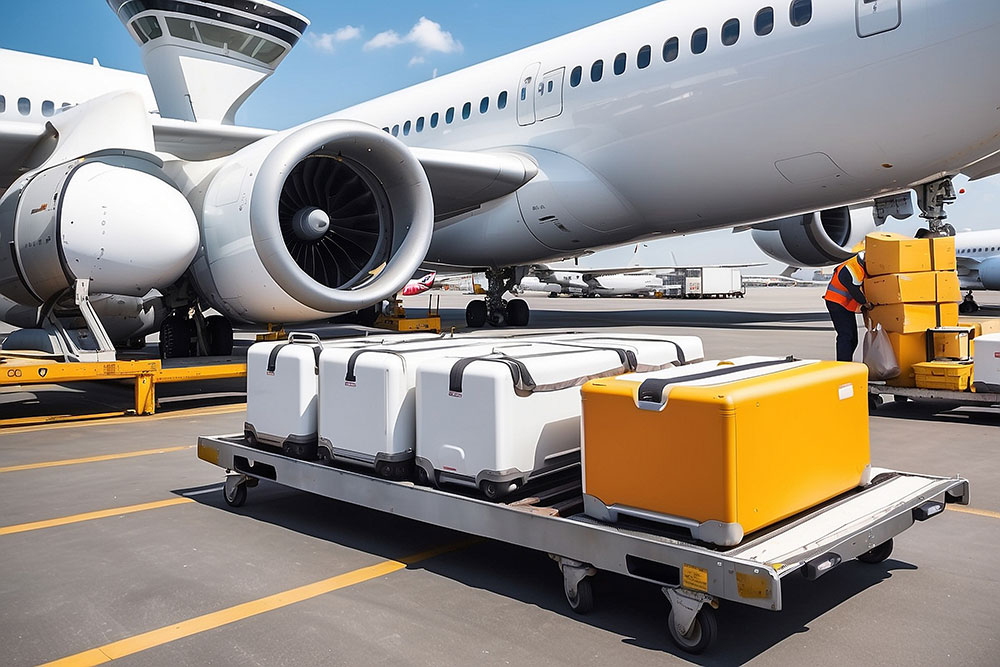
Introduction
China and Malaysia maintain strong trade ties, with Malaysia importing a wide range of products including electronics, machinery, textiles, furniture, and consumer goods. For importers, logistics can often be complex—dealing with customs, duties, and last-mile delivery. That’s where door-to-door (D2D) shipping becomes an invaluable solution.
Door-to-door shipping is a logistics model in which the freight forwarder handles the entire supply chain—from pickup at the Chinese supplier’s warehouse to final delivery at the buyer’s location in Malaysia. This all-in-one service saves time, reduces risks, and eliminates hidden costs.
What is Door-to-Door Shipping?
Door-to-door shipping means the logistics provider takes care of every step, including:
- Pickup from supplier or factory in China
- Export customs clearance in China
- International freight (air, sea, or courier)
- Import customs clearance in Malaysia
- Payment of duties, taxes, and handling fees (if DDP service is chosen)
- Final delivery to the consignee’s address in Malaysia
This service is particularly beneficial for SMEs, e-commerce sellers, and first-time importers who prefer a transparent, predictable logistics process.
Shipping Options for Door-to-Door Delivery
1. Air Freight Door-to-Door
- Transit Time: 4–7 days
- Best For: High-value, urgent, or lightweight goods (electronics, fashion, samples)
- Cost: Around US$5–8 per kg depending on weight and volume
- Advantages: Fast, secure, and reliable with real-time tracking
2. Sea Freight Door-to-Door
- Transit Time: 15–25 days (port-to-port) + 3–5 days for customs and delivery
- Best For: Bulk shipments, heavy machinery, furniture, raw materials
- Cost: A 20ft container costs approx US$1,200–1,800, while LCL (Less than Container Load) is US$30–60/CBM
- Advantages: Economical for large shipments; flexible with FCL and LCL options
3. Express Courier (DHL, UPS, FedEx, Aramex)
- Transit Time: 3–5 days
- Best For: Small parcels under 100 kg, e-commerce orders, documents
- Cost: Higher than air or sea freight, but excellent for urgent deliveries
- Advantages: Integrated customs clearance, fast last-mile delivery
Key Ports and Airports in Malaysia
- Seaports:
- Port Klang (Kelang) – Malaysia’s largest port, near Kuala Lumpur
- Penang Port – Serving northern Malaysia
- Johor Port (Pasir Gudang, Tanjung Pelepas) – Southern Malaysia, near Singapore
- Airports:
- Kuala Lumpur International Airport (KUL)
- Penang International Airport (PEN)
- Johor Bahru Senai International Airport (JHB)
These ports and airports serve as the primary gateways for door-to-door shipments from China.
Customs Clearance in Malaysia
Door-to-door shipping providers ensure smooth customs clearance, which is often the most complex part of international trade.
- Import Duties & Taxes: Malaysia applies import duties, SST (Sales and Service Tax), and VAT depending on product category.
- Required Documents: Commercial Invoice, Packing List, Bill of Lading / Air Waybill, and sometimes special permits.
- DDP Option: With Delivered Duty Paid, the forwarder pays all duties and taxes upfront, preventing delays and hidden costs.
Cost Breakdown
| Shipping Mode | Transit Time | Cost Estimate | Best For |
|---|---|---|---|
| Air Freight (D2D) | 4–7 days | US$5–8/kg | Urgent, valuable, light goods |
| Sea Freight (D2D) | 18–30 days | US$1,200–1,800 per 20ft container / US$30–60 per CBM | Bulk, heavy, large shipments |
| Express Courier (D2D) | 3–5 days | Higher than air freight, varies by weight | Small parcels, e-commerce, samples |
Advantages of Door-to-Door Shipping
- Convenience: The forwarder handles all procedures, saving time and effort.
- Transparency: All-inclusive pricing avoids surprise costs.
- Faster Customs Clearance: Pre-arranged documents and DDP reduce delays.
- Flexibility: Choice of air, sea, or courier depending on shipment size and urgency.
- Improved Customer Satisfaction: Reliable delivery timelines help businesses build trust with buyers.
Best Practices for Importers
- Choose the Right Mode: Use air freight for urgency, sea freight for bulk, courier for small parcels.
- Plan for Peak Seasons: Avoid shipping during Chinese New Year or festive seasons in Malaysia when costs surge.
- Optimize Packaging: Reduce volumetric weight to lower costs.
- Verify HS Codes: Correct classification prevents customs delays.
- Work with Experienced Forwarders: Reliable partners ensure smooth door-to-door delivery.
Example Case: Electronics Importer in Kuala Lumpur
A small electronics retailer in Kuala Lumpur imports smartphones and accessories from Shenzhen. Initially, the company used DDU shipping, which caused delays at Malaysian customs and unexpected fees. After switching to DDP door-to-door air freight, the forwarder managed taxes, permits, and delivery. Result: products reached the retailer in 5 days with no hidden costs, improving supply chain efficiency and customer satisfaction.
Conclusion
Door-to-door shipping from China to Malaysia is the most convenient logistics solution for businesses seeking efficiency and predictability. Whether you choose air freight, sea freight, or express courier, this service ensures that goods move seamlessly from the supplier’s warehouse in China to the consignee’s address in Malaysia.
For companies looking to save time, reduce risks, and avoid customs headaches, DDP door-to-door shipping is the best choice. With professional freight forwarding partners like GWT, businesses can rely on transparent pricing, reliable transit times, and end-to-end service tailored to their needs.
